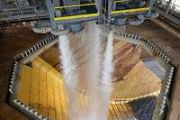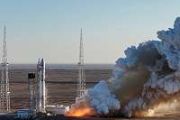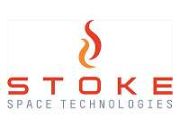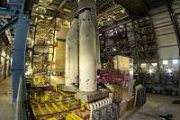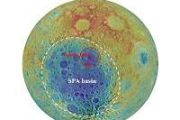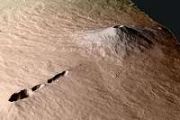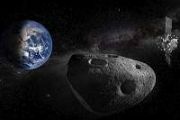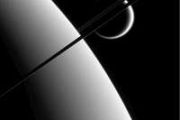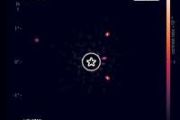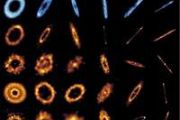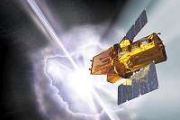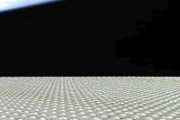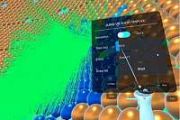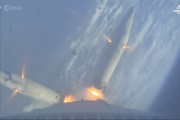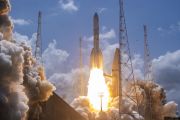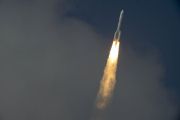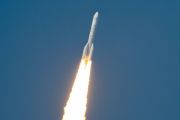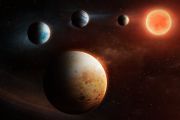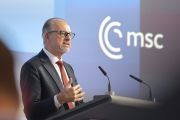
Copernical Team
Bioprinting in 3D: 2023 Science Wrap
 Imagine someone needs a heart transplant and scientists take cells from that person to create an entire new heart for them. Research on the International Space Station is helping to bring that dream closer to reality.
The process of 3D printing (also known as additive manufacturing) enables the design and production of one-of-a-kind items made of plastic, metal, and other materials, includ
Imagine someone needs a heart transplant and scientists take cells from that person to create an entire new heart for them. Research on the International Space Station is helping to bring that dream closer to reality.
The process of 3D printing (also known as additive manufacturing) enables the design and production of one-of-a-kind items made of plastic, metal, and other materials, includ Urgency of climate intervention highlighted by rising temperatures and reduced air pollution
 In the ever-evolving discourse on climate change, a significant debate is emerging, one that may soon capture mainstream attention. The crux of this debate is whether direct intervention in Earth's atmosphere is necessary to reduce incoming heat radiation, essentially terraforming our own planet.
The classical stance in the scientific community has been cautious, arguing that intervention
In the ever-evolving discourse on climate change, a significant debate is emerging, one that may soon capture mainstream attention. The crux of this debate is whether direct intervention in Earth's atmosphere is necessary to reduce incoming heat radiation, essentially terraforming our own planet.
The classical stance in the scientific community has been cautious, arguing that intervention Shenzhou XVII astronauts set for their first spacewalk
 The crew of the Shenzhou XVII mission is gearing up for their inaugural spacewalk, a significant step in China's continuing endeavors in space exploration. The China Manned Space Agency, in a recent announcement, confirmed that the trio aboard the mission - Senior Colonel Tang Hongbo, Lieutenant Colonel Tang Shengjie, and Lieutenant Colonel Jiang Xinlin - are in optimal condition and ready for t
The crew of the Shenzhou XVII mission is gearing up for their inaugural spacewalk, a significant step in China's continuing endeavors in space exploration. The China Manned Space Agency, in a recent announcement, confirmed that the trio aboard the mission - Senior Colonel Tang Hongbo, Lieutenant Colonel Tang Shengjie, and Lieutenant Colonel Jiang Xinlin - are in optimal condition and ready for t Sidus Space's LizzieSat gears up for launch with successful test
 Sidus Space, Inc. (NASDAQ: SIDU) has announced the successful completion of a crucial phase in the development of its LizzieSat satellite. This milestone comes as the satellite prepares for its impending launch on SpaceX's renowned Transporter-10 mission.
The recent completion of environmental testing at NTS Orlando marks a significant achievement for Sidus Space. LizzieSat, the centerpiec
Sidus Space, Inc. (NASDAQ: SIDU) has announced the successful completion of a crucial phase in the development of its LizzieSat satellite. This milestone comes as the satellite prepares for its impending launch on SpaceX's renowned Transporter-10 mission.
The recent completion of environmental testing at NTS Orlando marks a significant achievement for Sidus Space. LizzieSat, the centerpiec NASA and Blue Origin partner to propel space technology in latest suborbital flight
 In a significant step towards advancing space technology, NASA, in partnership with commercial spaceflight company Blue Origin, successfully conducted a suborbital flight test on December 19, 2023. The mission, part of NASA's Flight Opportunities program, propelled 14 research payloads towards future space missions and commercial applications. This collaboration signifies a concerted effort to t
In a significant step towards advancing space technology, NASA, in partnership with commercial spaceflight company Blue Origin, successfully conducted a suborbital flight test on December 19, 2023. The mission, part of NASA's Flight Opportunities program, propelled 14 research payloads towards future space missions and commercial applications. This collaboration signifies a concerted effort to t NASA Enhances Aerospace Innovation with New SBIR Ignite Phase I Awards
 NASA has recently announced the second round of Phase I awards under its Small Business Innovation Research (SBIR) Ignite program. This initiative reflects NASA's commitment to fostering innovation and supporting American small businesses in advancing aerospace technologies.
A total of ten small businesses have been selected for these awards, each receiving up to $150,000. This funding is
NASA has recently announced the second round of Phase I awards under its Small Business Innovation Research (SBIR) Ignite program. This initiative reflects NASA's commitment to fostering innovation and supporting American small businesses in advancing aerospace technologies.
A total of ten small businesses have been selected for these awards, each receiving up to $150,000. This funding is Bayanat and Yahsat to Merge, Forming AI-Driven Space Technology Powerhouse, Space42
 Abu Dhabi's space technology landscape is set to witness a significant transformation with the proposed merger of Bayanat AI PLC ("Bayanat") and Al Yah Satellite Communications Company P.J.S.C. ("Yahsat"), two ADX-listed entities. Post-merger, the new entity will be known as Space42, marking a strategic move to create a formidable player in the AI-powered space technology sector, not just in the
Abu Dhabi's space technology landscape is set to witness a significant transformation with the proposed merger of Bayanat AI PLC ("Bayanat") and Al Yah Satellite Communications Company P.J.S.C. ("Yahsat"), two ADX-listed entities. Post-merger, the new entity will be known as Space42, marking a strategic move to create a formidable player in the AI-powered space technology sector, not just in the Innovative X-ray lobster-eye mission set to launch
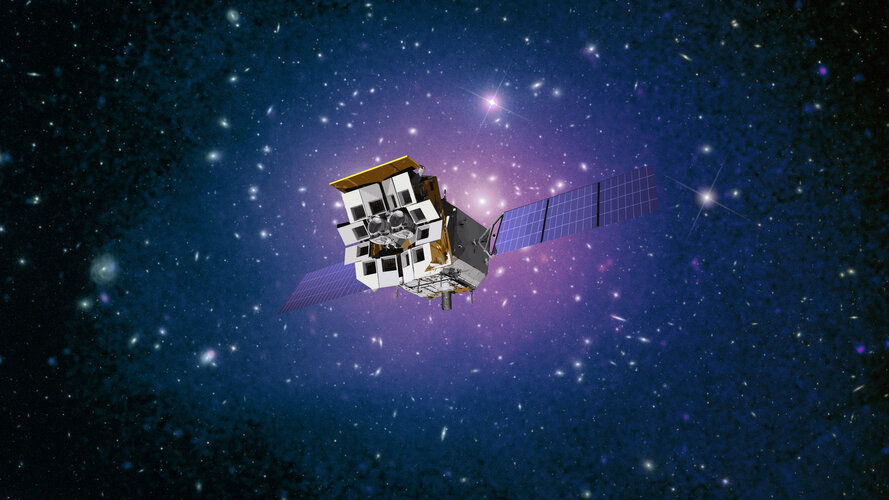
The Chinese Academy of Sciences (CAS) spacecraft Einstein Probe is ready to launch in January 2024. Equipped with a new generation of X-ray instruments with high sensitivity and a very wide view, this mission will survey the sky and hunt for powerful blasts of X-ray light coming from mysterious celestial objects such as neutron stars and black holes.
Einstein Probe is a collaboration led by CAS with the European Space Agency (ESA) and the Max Planck Institute for Extraterrestrial Physics (MPE), Germany.
Ariane 6 smoke during combined test loading 3
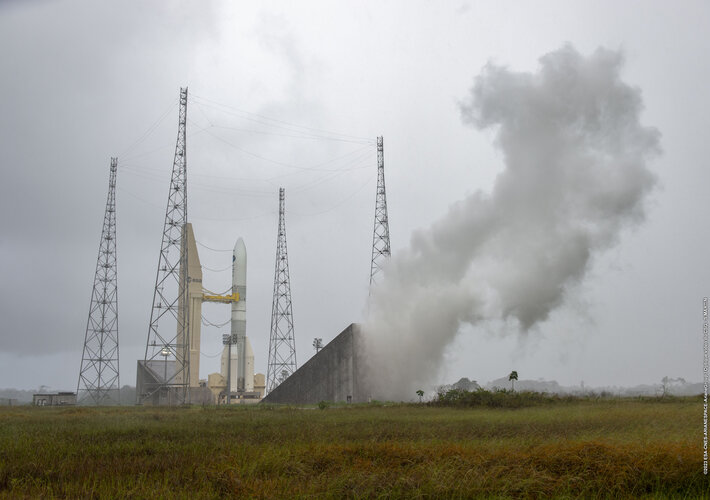 Image:
Ariane 6 smoke during combined test loading 3
Image:
Ariane 6 smoke during combined test loading 3 
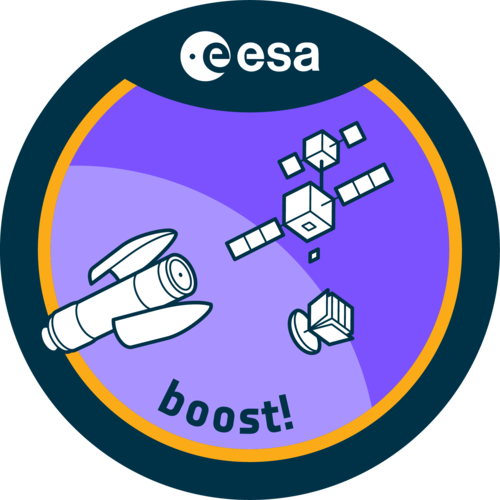 Image:
Boost! logo
Image:
Boost! logo 